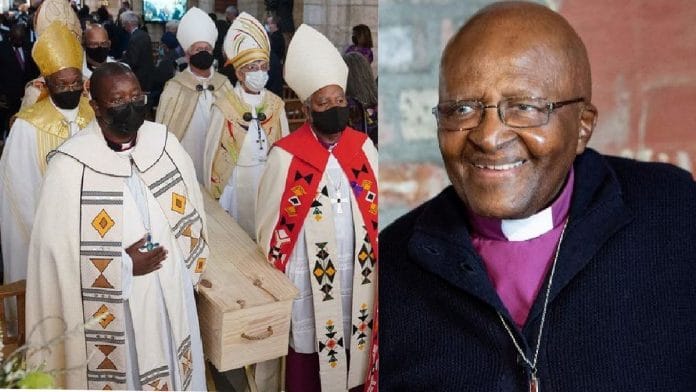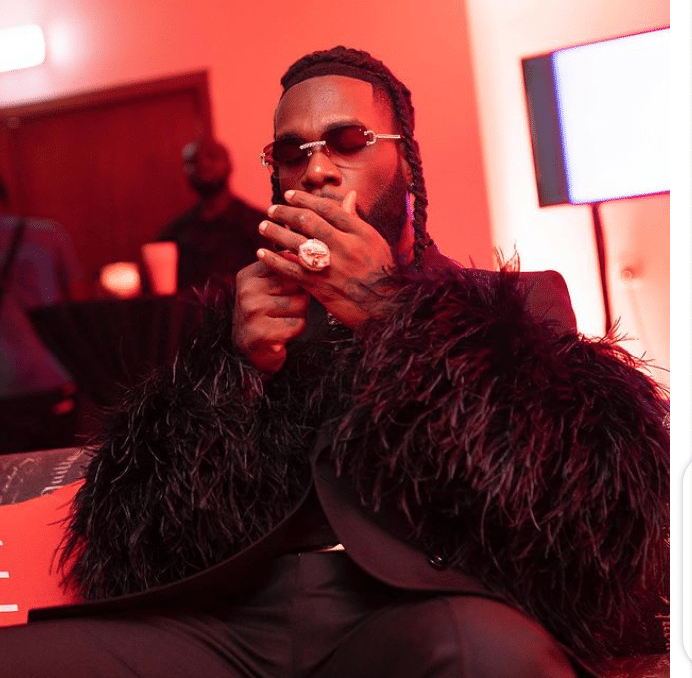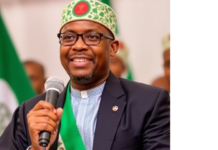Desmond Mpilo Tutu, South Africa’s anti-apartheid icon, died on Sunday at the age of 90. Since then, the world has lamented the death of the international human rights defender.
Tutu has been a leading advocate for the end of apartheid in South Africa, the country’s official policy of racial segregation and White minority rule, for decades. He was awarded the Nobel Peace Prize in 1984, just before apartheid collapsed in the early 1990s and Nelson Mandela, the country’s first Black president, was released from prison.
President Cyril Ramaphosa called Tutu “the spiritual father of our new nation” in his eulogy.
Tutu had previously stated that the funeral should not be “lavishly spent.” “The cheapest available casket,” he said.
Family, friends, clergy, and politicians were among those who attended Saturday’s service at St George’s Cathedral, which was attended by a small number of people due to coronavirus restrictions. Tutu’s widow, Nomalizo Leah, sat in a wheelchair in front of the audience, wearing a purple shawl that matched her late husband’s clerical vestments.
The following are significant dates in his life:

- He is born on October 7, 1931, in the little town of Klerksdorp, west of Johannesburg, to a domestic worker mother and a teacher father.
- 1961: After working as a schoolteacher and studying theology, he is ordained as an Anglican priest.
– 1976: He is named Bishop of Lesotho, a neighboring country.
– 1978: Becomes the first black secretary general of the South African Council of Churches, a powerful organization with 15 million members engaged in the anti-apartheid campaign.
– 1984: For his opposition to South Africa’s apartheid state, he receives the Nobel Peace Prize. In the same year, he becomes Johannesburg’s first black bishop and calls for a boycott of the white minority administration.
1986: He is consecrated as the first black Archbishop of Cape Town and the head of the Anglican Church in Southern Africa, which has a population of two million people.
- 1986: He is consecrated as the first black Archbishop of Cape Town and the head of the Anglican Church in Southern Africa, which has a population of two million people.
– 1996: Two years after the end of apartheid, he becomes the head of the Truth and Reconciliation Commission, which begins hearings into the former regime’s misdeeds.
- 1997: Diagnosed with prostate cancer and treated multiple times over the next few years.
– 2007: Assists in the formation of The Elders, a gathering of world leaders dedicated to peace and human rights, and serves as its chairman until 2013.
- 2010: He announces his retirement from public life at the age of 79.
- 2016: Joined campaigners for the right to die with dignity.




















